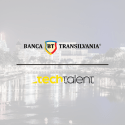Digital transformation is reshaping customer service and engagement, compelling businesses to adopt technology for personalized experiences. This move towards large-scale customization marks a significant shift in consumer relations, with tech playing a key role in offering services tailored to a global audience's varied needs. Technologies like big data analytics, AI, cloud computing, and IoT are crucial in predicting customer preferences and delivering personalized content seamlessly across platforms. These advancements not only enhance customer satisfaction and loyalty but also differentiate businesses in a competitive market. As we delve into how these technologies redefine customer interactions, it's clear that the future of customer engagement lies in building meaningful relationships through technology, emphasizing a deep understanding of individual customer needs.
The Significance of Personalized Experiences
In today's digital landscape, personalization has transitioned from being a mere preference to a fundamental expectation among consumers. The modern customer's journey is characterized by a desire for experiences that not only acknowledge but also adapt to their unique preferences, behaviors, and history of interactions. This evolving consumer mindset renders the traditional one-size-fits-all approach obsolete, pushing businesses towards a more nuanced and individual-centric model of customer engagement.
Such a paradigm shift in expectations compels companies to overhaul their strategies, embedding personalization at their core to stay competitive and relevant. The demand for deeper attention to detail, increased relevance, and a pronounced personal touch in every brand interaction signifies a broader change. It emphasizes the need for businesses to not just recognize but celebrate the individuality of each customer, crafting experiences that resonate on a personal level. This strategic pivot is not optional but essential for businesses aiming to forge stronger connections, enhance customer loyalty, and ultimately drive growth in an increasingly digitalized market environment.
Technologies Driving Personalization at Scale
Several technologies stand at the forefront of enabling personalization at scale, each contributing uniquely to crafting bespoke customer experiences. So, let’s dive deeper into the key technologies that facilitate this era of personalized customer engagement at scale.
Big Data Analytics Enhanced
Big data analytics has revolutionized the way businesses understand and cater to their customers. By analyzing extensive datasets, companies can uncover deep insights into individual customer preferences, behavior patterns, and even predict future actions with remarkable accuracy. This intelligence allows for the crafting of highly personalized experiences that resonate on a personal level with consumers. For instance, retailers can use purchase history and browsing behavior to recommend products that a customer is likely to be interested in, significantly increasing the chances of purchase. Moreover, by identifying trends and patterns in customer data, businesses can optimize their operations and strategies to better meet customer expectations, ultimately leading to improved customer loyalty and satisfaction. The predictive nature of big data analytics also enables companies to stay ahead of customer needs, offering solutions before the customer even realizes they need them.
Artificial Intelligence (AI) and Machine Learning (ML) Expanded
AI and ML stand as the technological backbone of modern personalized customer experiences. These technologies excel in making sense of the vast amounts of data generated by online interactions, processing and analyzing it to identify customer preferences and trends. Beyond trend identification, AI and ML algorithms can predict customer behavior, allowing businesses to anticipate needs and personalize their offerings proactively. AI-driven tools like chatbots and virtual assistants are becoming increasingly sophisticated, capable of providing personalized assistance that feels genuine and human-like. These AI interfaces can handle a wide range of queries and tasks, from recommending products based on past purchases to offering personalized advice or support, making the customer's journey smoother and more enjoyable. The continuous learning capability of these technologies means that they get better over time, constantly improving the accuracy and relevance of personalized experiences.
Cloud Computing in Depth
Cloud computing is the unsung hero of personalized customer experiences at scale. It provides the robust infrastructure that enables businesses to collect, process, and analyze large datasets without significant investments in physical hardware. The flexibility and scalability of cloud services mean that companies can easily adjust their resources to meet demand fluctuations, ensuring consistent and seamless delivery of personalized experiences to customers worldwide. Moreover, cloud platforms host advanced analytics tools and AI capabilities, making them an integral part of the personalization ecosystem. They allow businesses to deploy complex algorithms that tailor content, recommendations, and services in real-time, catering to the individual needs of customers across different regions without latency issues. This global reach and responsiveness are key to maintaining a competitive edge in today's digital marketplace.
Internet of Things (IoT) Further Explained
The Internet of Things (IoT) bridges the gap between the digital and physical worlds, opening new avenues for personalized customer experiences. By embedding the internet connectivity into everyday objects and devices, IoT collects data that provides insights into the user's habits, preferences, and environment. This real-time, contextual data enriches customer profiles, enabling businesses to offer highly personalized services and interactions. For example, smart thermostats can learn a homeowner's daily schedule and temperature preferences, adjusting the environment automatically for optimal comfort. Wearable devices track health metrics, offering personalized fitness and wellness advice. IoT devices in cars can tailor the driving experience, adjusting settings for music, navigation, and even driving modes to suit the driver's preferences. This level of personalization extends the reach of digital experiences into the physical world, enhancing the customer's day-to-day life with a seamless blend of technology and personal touch. By leveraging IoT, businesses can create a more holistic view of their customers, leading to deeper engagement and stronger loyalty through truly personalized experiences that cater not just to what customers do online, but how they live in the real world.
The Impact of Personalization at Scale
The adoption of tech-enabled personalized experiences offers numerous benefits for both businesses and their customers. So, let's delve into the specific benefits and transformative effects this adoption has on enhancing customer engagement, driving business growth, and fostering innovative market strategies.
Enhanced Customer Satisfaction and Loyalty
The journey towards personalization at scale transforms ordinary customer interactions into deeply engaging and memorable experiences that are meticulously tailored to meet individual preferences and needs. This level of personalization elevates customer satisfaction by ensuring that each interaction feels uniquely designed for the individual, whether it's through customized product recommendations, personalized communication, or bespoke services. When customers feel recognized and valued in such a personalized manner, their satisfaction with the brand deepens, significantly increasing the likelihood of them becoming repeat buyers.
Furthermore, this satisfaction plays a crucial role in fostering customer loyalty, a vital asset in today's competitive market landscape. Loyal customers not only bring consistent revenue but also serve as brand advocates, sharing their positive experiences with peers and through social media platforms, effectively amplifying the brand's reach and reputation. By nurturing personalized connections, businesses therefore cultivate a dedicated customer base that not only continues to engage with the brand but also champions it within their circles, driving growth without relying on traditional advertising methods.
Increased Revenue and Growth
Implementing personalization strategies significantly enhances revenue and stimulates business growth. By leveraging insights from customer data, such as past purchase behaviors and browsing history, businesses can offer highly targeted recommendations. This approach ensures that each suggestion is closely aligned with the individual’s preferences and needs, making the prospect of additional purchases more appealing. Personalization not only improves the relevance of product or service offerings but also markedly increases the chances of conversion, as customers encounter options that genuinely resonate with them.
What’s more, personalization opens the door to more effective cross-selling and up-selling by enabling businesses to understand and anticipate the needs and interests of their customers better. Introducing complementary products or superior versions of services that customers are already interested in can significantly enhance the customer experience. This strategy not only boosts the average order value but also contributes to a positive brand perception, crucial for fostering customer loyalty and repeat business. In turn, this loyalty translates into a steady revenue stream and positions the brand for sustained growth in a competitive marketplace.
Competitive Differentiation
Competitive differentiation has become increasingly crucial in today's saturated markets, where consumers are bombarded with endless choices. Personalization emerges as a powerful strategy to cut through the noise, enabling businesses to distinguish themselves by offering unique, tailored experiences that cater specifically to the individual preferences and needs of their customers. This approach allows companies to not only capture the attention of potential customers but also to create a memorable brand experience that resonates on a personal level, significantly enhancing the value proposition offered to consumers.
By prioritizing personalization, businesses can foster deeper connections with their customers, transforming ordinary transactions into meaningful interactions. This deeper engagement is instrumental in building trust and loyalty, which are key factors in customer retention. In markets where competitors are just a click away, the ability to retain customers through personalized experiences becomes a significant advantage. Companies that successfully implement personalization strategies are more likely to see customers returning, preferring the personalized touch they receive over the generic offerings of competitors. Thus, personalization not only helps in attracting a broader customer base but also in maintaining a loyal customer following, setting the stage for sustained business growth and market leadership.
Conclusion
Tech-enabled customer experiences and personalization at scale represent a paradigm shift in how businesses interact with their customers. This approach not only enhances customer satisfaction and loyalty but also drives revenue growth and competitive differentiation. As technology continues to evolve, so too will the possibilities for personalization, offering an ever-expanding horizon for businesses willing to invest in understanding and catering to their customers' unique needs and desires. Embracing these technologies and the opportunities they present is crucial for any business aiming to lead in the digital age.



